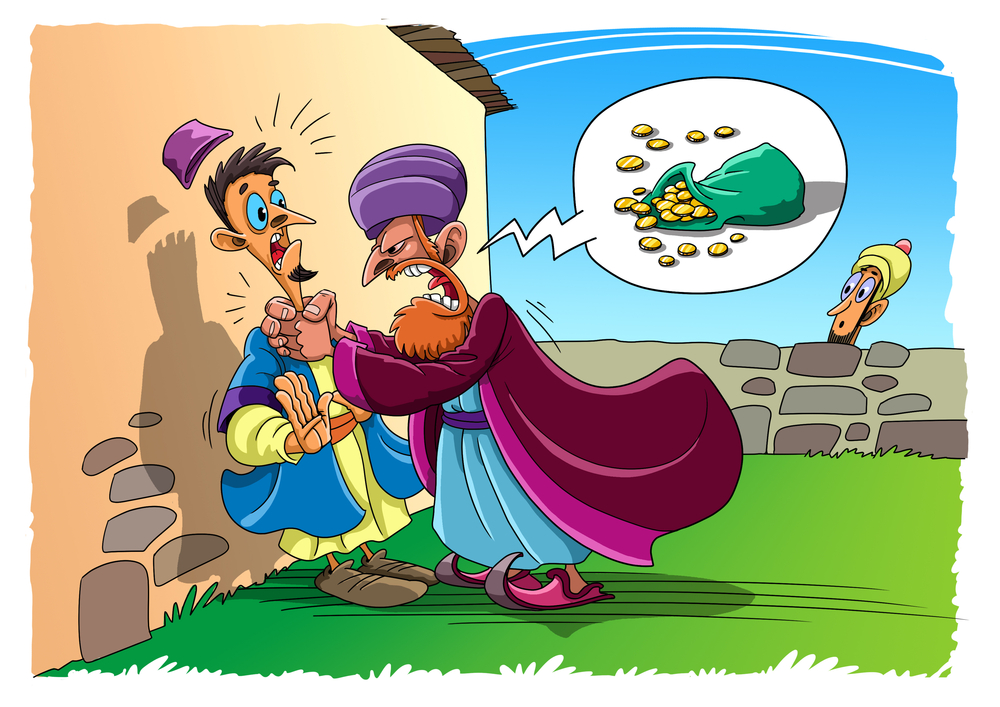The idea of debt forgiveness has come into national debate several times during the past year. Much of the push for debt restructuring has come from the left, which is seen as more liberal and progressive-leaning people. The student debt total has already surpassed $1.7 trillion.
However, studies have shown that the forgiveness of debt is actually a big part of Judeo-Christian religious doctrines. This may come as a surprise to people leaning on the right-wing conservative side, but forgiveness is actually a big part of the Bible. We find the first accounts of financial debt discussed in the Old Testament.
Would forgiving financial debts in multiple sectors such as rent, student loans, and medical bills benefit the economy? More to the point, is this something recommended in Holy Scripture? That is what we will consider in-depth in this article.

Debt Forgiveness in the Bible
Most religious people among us turn to the Bible to find answers to ethical questions, particularly those that relate to socio-economic structure. Interestingly, the Bible does discuss this issue in several places.
One of the most glaring examples of forgiving debts is found in Deuteronomy 15.
At the end of every seven years, you shall grant a remission (release) of financial debt. And this is the form of the release: Every creditor who has lent anything to his neighbor shall release it; he shall not require it of his neighbor or his brother, because it is called the Lord’s release.
This is in line with other moral philosophies taught in the Bible. For example, farmers are instructed to give the land a break every seven years and allow it to lie fallow. There also appear to be instructions for landowners to open their fields for neighbors and the poor every seven years. Slave owners were instructed to set their slaves free after seven-year.
It is similar to the idea of the Sabbath, where people were encouraged to work six days a week, and then take the seventh day off for rest.
Debt is not something to be taken lightly, however, the Bible seems to instruct that no one should go on living their entire life saddled with unmanageable debts, rather live a debt free existence. “Prayer Jesus thank you for canceling my spiritual debt through the cross—a debt I could never pay….- “to set free those who are downtrodden”
Remember, Jesus paid our debt for sin on the cross. “…You shall not harden your heart, nor close your hand from your poor brother….”, “or the LORD your God shall bless you as He has promised you, and you will lend to many nations but you will not borrow; and you will rule over many nations, but they will not rule over you. If there is a poor man with you, one of your brothers…”
Interestingly, the US Bankruptcy Code appears to have been fashioned after the Bible where people who hire a bankruptcy attorney, declared bankruptcy are allowed to get a discharge of debt after eight years.
The idea of debt forgiveness is discussed in other places in the Bible as well. The Book of Nehemiah, Chapter 10:31 says. The Biblical basis for such considerations is based on the sabbatical and Jubilee years.
As for the peoples of the land who bring wares or any grain on the Sabbath day to sell, we will not buy from them on the Sabbath or a holy day; and we will forego the crops the seventh year and the exaction of every debt. “You shall thus consecrate the fiftieth year and proclaim a release through the land to all its inhabitants.”
In the Book of Ezekiel Chapter 18, a man of righteousness and justice is described as the one who,
…does not oppress anyone, but restores to the debtor his pledge, does not commit robbery, but gives his bread to the hungry and covers the naked with clothing,
…does not lend money on interest or take increase, if he keeps his hand from iniquity and executes true justice between man and man
We know that charity and uplifting the weak is a strong part of the Bible’s moral philosophy. While the Old Testament does not prohibit lending on interest, there is a strong emphasis on those who forgive debts or lend money without taking an interest.
The New Testament takes things up another level. Mathew Chapter 6, verse 12 says,
‘And forgive us our debts, as we also have forgiven our debtors.
Luke Chapter 11, verse 4 says,
‘And forgive us our sins,
For we ourselves also forgive everyone who is indebted to us.
And lead us not into temptation.’”
We can find similar messages in Colossians Chapter 2 and Philemon Chapter 1 where Jesus Christ’s coming has been said to have canceled out the certificate of debt for the oppressed.

Debt Forgiveness from a Practical Point
Not everyone believes that laws and teachings from Biblical times are applicable today. Different societies, different socio-economic systems. Those were much simpler times and debts were restricted between two people. Forgiving debts back then would be a simple matter between two people.
The modern world is largely built on the principles of an interest-based banking system, where everything is linked. Doing away with debts suddenly could impact the wider economy and cause the collapse of the financial markets. So no one is suggesting that.
We understand that our banking system is responsible for pooling resources and investing them in huge projects that led to the commercial and financial development of our world. The banking system is a must for development.
The region from the Middle East to North Africa, where the people did not adopt the banking system due to religious reasons, was left far behind commercially and technologically. There were other causes for the decline of the Islamic world as well, but the lack of a robust banking system also played a role.
However, we must also recognize the underlying problems in interest rates based economies. Success in the past does not guarantee success in the future.
Today, we live in a world where the rich rule in the way they handle money at the expense of the poor. Even those of the lower class that has a subpar living standard may find themselves sinking deeper into the debt hole while those with the capital keep getting richer without lifting a finger.
he Rabbis held that the testimony of anyone who charged interest on a loan was not acceptable in court. In our global economy built on compound interest–consider the implications! Jesus begins his public ministry in Luke’s gospel by quoting a Jubilee text from the prophet Isaiah…”
The disparity in social classes is getting wider and the banking system cannot be absolved completely of any blame for this.
Debt Relief in Certain Cases Can Help Improve Our Society
For many social activists, debt release for loans that originated as medical bills, rental arrears, and student loans is not just a means to implement economic and environmental justice. It is an opportunity to examine how we want to shape our future societies for the better. Jesus would want us to live a debt-free life, have a sabbath rest, proclaim liberty, and honor god.
Nowhere in the Bible does it say that we must build a socialist state. The overall message leans towards building a capitalist society where people are free to be what they want and own private enterprises.
However, the Bible does recognize that a capitalist society that forgets the virtues of forgiveness, charity, and uplifting the weak can end up in a very bad situation. The direction in which we are going as a whole, both financially and in terms of social equality must be examined on a regular basis.


